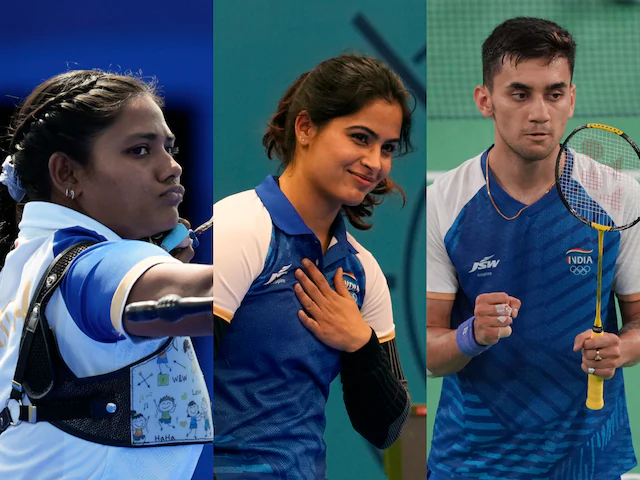
India at the Olympics 2024
By Justice Katju
Out of the 50 countries which have won medals in the 2024 Olympic games, India is at an unenviable position number 47, almost at the bottom of the table..
https://olympics.com/en/paris-2024/medals
Is this not a shame for the biggest country in the world by population, having about 1430 million ( 143 crore ) people ? Much smaller countries, having only a very small fraction of population and territory than ours, e.g. South Korea, Hong Kong, Azerbaijan, Kazakhstan, Uzbekistan, Guatemala, Ecuador, Slovenia, Serbia, Uganda, North Korea, Kosovo, Fiji, Mongolia etc are ahead of us in the medals table. All we can boast about are the bronze medals won by Manu Bhaker.
How does one explain this lamentable performance by the country about which it was prophesied that it will have the third largest economy of the world within the next 3 years
Firstly, the statistics given about the Indian economy have always been highly questionable, as explained below :
https://indicanews.com/justice-markandey-katju-lies-damned-lies-and-statistics-in-india/
https://indicanews.com/justice-markandey-katju-the-truth-behind-indias-explosive-gdp-growth/
There is massive, poverty, record and rising unemployment, skyrocketing prices, appalling level of child malnutrition, etc in India
Except for cricket ( and there too only at the highest level ), there is little money in sports in India.
So even good and talented sportspersons think that when they are past their youth no one will bother about them, and they will starve. Their parents and well wishers also advise them to forget games, and concentrate on studies, and then sit for some competitive examinatiions, where if they succeed they will have job security till the age of supernnuation, and pension thereafter. But in sports there is no economic security
Shankar Lakshman, one of India’s best goal-keepers in hockey, the winner of two Olympic golds and one silver, was the first-ever goalkeeper captain for India’s international hockey team and a winner of the Padma Shri. Despite his achievements, Lakshman fell out of the limelight early, living his last years in abject poverty.
“What happens when you’re too old to play?”
A primary reason why parents discourage students from considering sports as a legitimate career option is its short shelf-life. Examples like Makhan Singh, who won gold and silver medals in the Asian games, and the Arjun award, but later died in abject poverty, and Lakshman, echo the Indian parent’s worst fears: There is no guarantee to a sportsperson of an economically secure life, especially in cases of injury, non-performance, or simply, age.
Unfortunately, these fears are not unfounded. The lack of efficient prioritisation and balance has ensured that most sportspersons do not continue their education beyond a point. As a result, falling back on a career at a later stage in their lives becomes quite an impossible task. Majority of them are left with basic government jobs that rarely pay the bills. The unluckier ones, such as sprinter Sarwan Singh or boxer Kamal Kumar Valmiki, are forced to earn their living through completely disparate professions — a taxi driver and a garbage collector respectively.
Is it any wonder then that Indian parents worry there’s no future in sports?
Also, modern sports is a very expensive pursuit, and is not like gulli danda or kabaddi.The sports equipment nowadays are very expensive, and since most people in India are poor, they cannot afford to buy them. Thus 75% or more people of India are debarred from modern sports due to poverty.
I remember when I was a Judge of Allahabad High Court, my friend Mohd Tarif, who had played cricket for UP in the Ranji Trophy and for Central Zone in the Duleep Trophy, once came to meet me at my residence with his son Mohd Kaif, who was then about 17 or 18 years old. Tarif requested me if I could hep his son Kaif get some good cricket gear, as he was unable to buy them ( Tarif was only a TTE in the railways ).I immediately contacted a friend of mine who was one of the owners of a sports gear manufacturing company, and he agreed to give all the equipment Kaif needed free of cost, including, bats, pads, gloves, helmet, etc. Kaif later played for India, and proved to be a good batsman. In developed countries the governmemts give a huge amount of money to sports, and provide many facilities to the sportspersons
In developed countries most sportspersons do not have to worry that they will starve after their youth is over. They get jobs as coaches, etc.and the government and sports organisations take care of them by providing suitable employment with good salaries..
So the dismal and bleak state of affairs in Indian sports will continue till sportspersons are assured that they will be taken care of after their sporting days are over.
